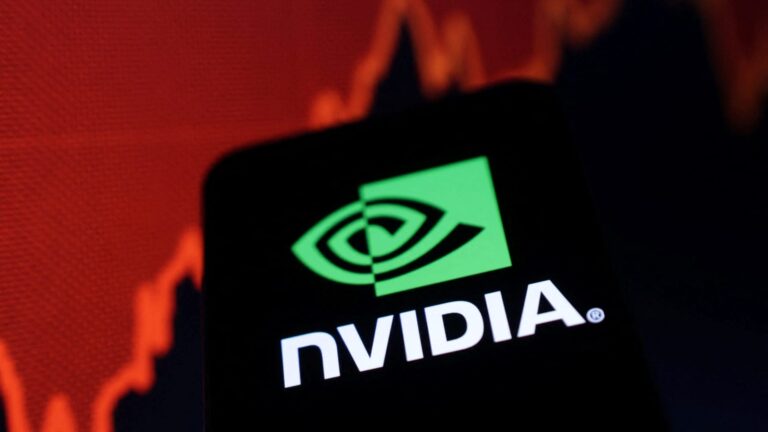BEIJING — U.S. chip giant Nvidia has flagged heightened competition from Huawei, despite U.S. restrictions on the Chinese telecommunications company.
In an annual filing Wednesday, Nvidia listed Huawei among its current competitors, including it in the list for a second straight year. The company, blacklisted by the U.S. for national security reasons, did not feature among Nvidia’s competitors for at least three prior years.
Nvidia listed Huawei among its competitors in four of five categories, including chips, cloud services, computing processing and networking products.
“There’s a fair amount of competition in China,” Nvidia CEO Jensen Huang told CNBC’s Jon Fortt Wednesday.
“Huawei, other companies, are … quite vigorous and very, very competitive,” Huang said.
Since 2019, the U.S. has restricted Huawei’s ability to access technology from American suppliers, from advanced 5G chips to Google’s Android operating system.

Huawei’s revenue exceeded 860 billion yuan ($118.27 billion) in 2024, state media reported, a 22% jump in revenue from 2023, and the fastest growth since a 32% increase in 2016, according to CNBC calculations of publicly released figures. Huawei typically publishes its annual reports in March.
The company’s revenue barely grew in 2020, and plunged by nearly 29% in 2021. Its consumer segment was hit hard, and even as revenue rose 17% year on year to 251.5 billion yuan in 2023, it was just over half of what the unit generated at its peak in 2020.
The telecommunications company started to make a comeback in the smartphone market in 2023 with the release of its Mate 60 Pro in China. Reviews indicated the device offers download speeds associated with 5G — thanks to an advanced semiconductor chip.
Just over a year later, Huawei launched the Mate 70 smartphone series that uses the company’s first fully self-developed operating system, HarmonyOS NEXT.


